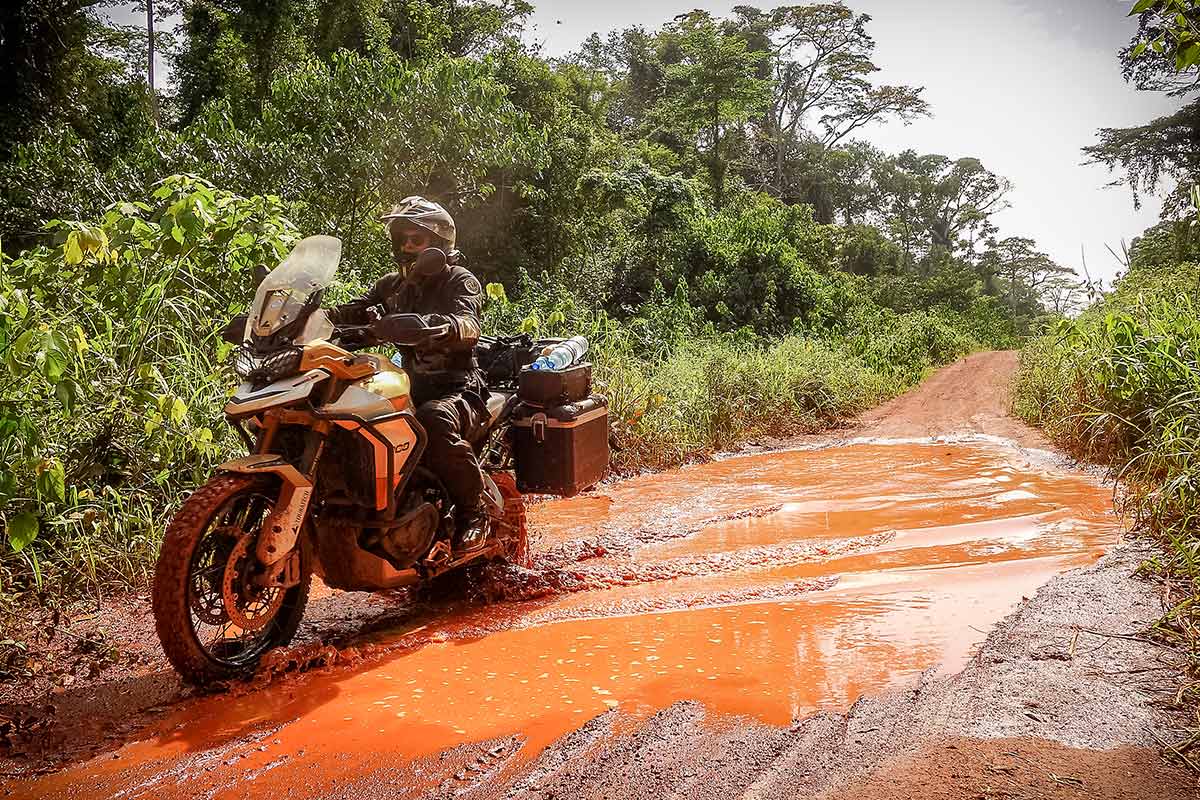Not lacking in crises itself, Africa is once again moving more into the focus of motorbike travellers in view of the political situation in Eastern Europe, Russia and the Middle East. Recognised experts provide up-to-date information in Travel Time on the topics of travel preparation, behaviour on the road and important travel routes.
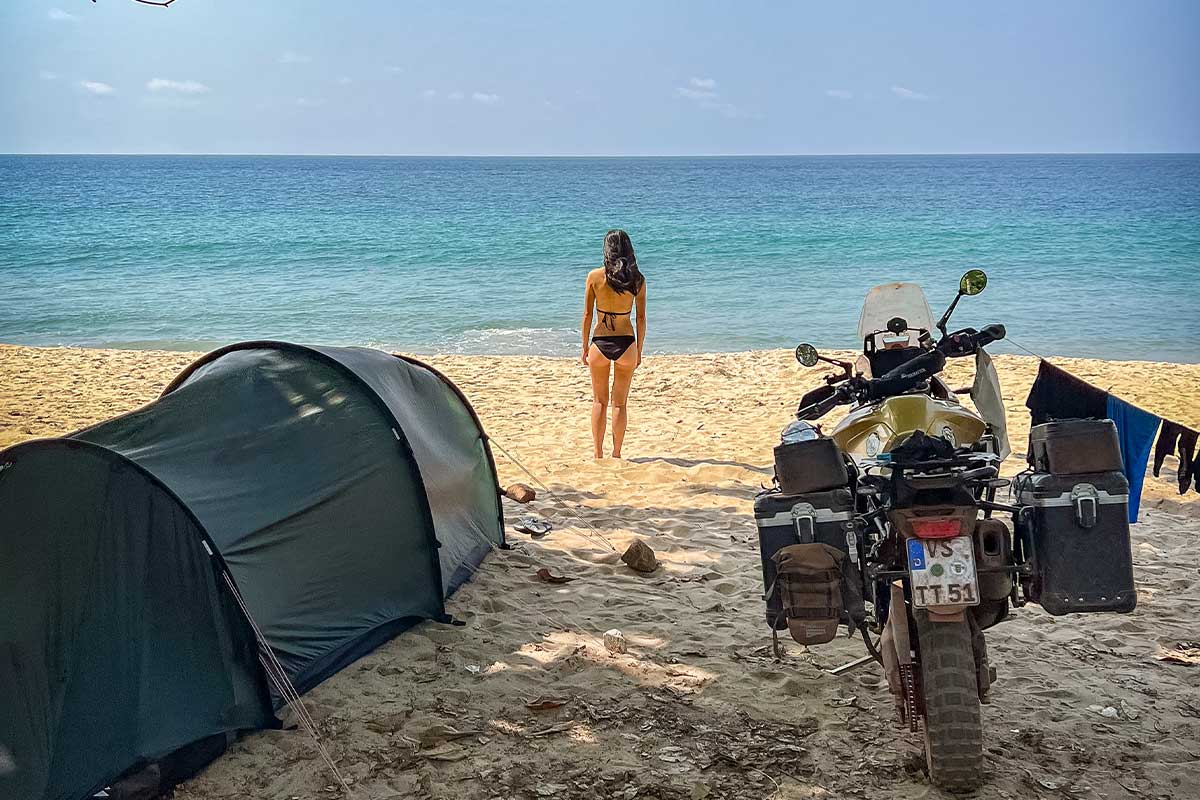
The current world situation is not exactly making it easy for motorbike travellers. The terrible Ukraine war is raging right on our doorstep. But this means that not only are trips to this country out of the question, but the aggressor Russia is also no longer a travel destination. And with transit through the giant empire, destinations such as Mongolia, Kazakhstan, Turkmenistan, Kyrgyzstan and Tajikistan (if one wants to go there at all in view of Islamist activities) fall flat. And things don't look much better on the southern route. The security situation in Iran has been more than precarious since the and the nuclear dispute flared up again and protests against the government continue. The situation on the Levant is even worse: the Syrian civil war, now in its thirteenth year, refuses to end, and the devastating earthquake in February has increased the people's hardship.
If you don't want to fly your bike halfway around the world, the focus for Adventure Riders shifts to Africa, which is not exactly poor in crises either. And indeed, it's worth taking a closer look at the Black Continent, despite all the problems. We have compiled tips and recommendations from travellers, tour operators and locals from the Touratech cosmos. These experts point out where the incomparable beauty of Africa can be experienced with acceptable risks. Which risks one wants to take is a very individual decision that should be made on a solid basis of up-to-date research at the German Foreign Office as well as at the tropical institutes.
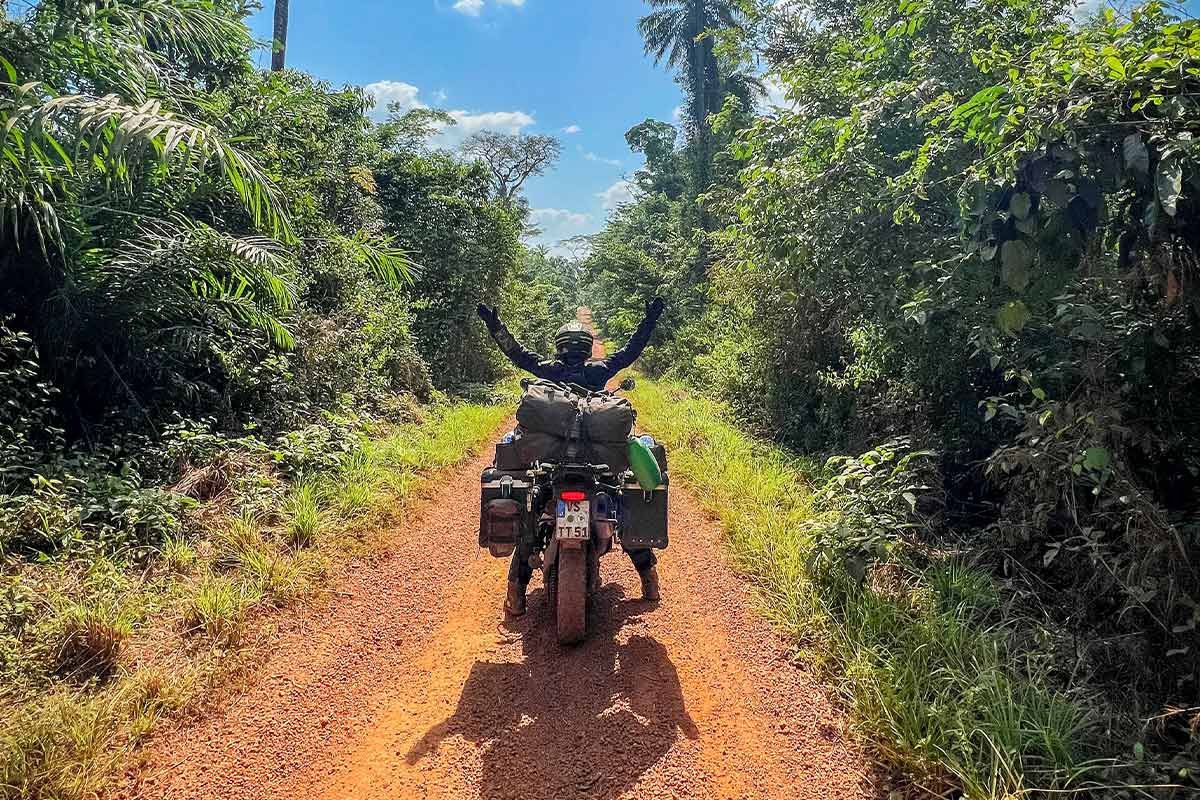
Quo Vadis: Western or Eastern route?
With Tunisia and Morocco, there are two countries for a soft start into the African adventure. But if you want to go further south, the question arises whether you should rather choose the western or eastern route, because the classic entry via Algeria and further via Mali and/or Niger has been associated with absolutely incalculable risks for many years.
The eastern route basically has the advantage that you pass through fewer countries on the way south, which reduces the number of border crossings. That saves a lot of money and nerves. On the other hand, there are often difficulties with customs clearance for motorbikes at the border between Egypt and Sudan. Not infrequently, this border is even completely closed for longer periods of time. And because of the ongoing government crisis in Sudan, it is hardly possible to get a visa for this country at the moment, says Joe Küster, owner of the tour operator Overcross.
In itself, the western route via Morocco, Western Sahara, Mauritania, Senegal, etc. is less problematic. But here, countless border crossings try the patience of the traveller. In principle, a route near the coast should be chosen on the western route, as the security situation there is better in most countries than in the interior, Sandra, who recently travelled this route as an ADV Travel Bug together with her partner Fiona, recommends.
Paperwork
In view of the large number of documents required, motorbike travellers in Africa sometimes feel like an office on two wheels. A passport is indispensable, as well as an international vehicle registration document and an international driving licence. The Carnet de Passages, which allows you to import and export your motorbike duty-free, is also essential. It is best to make copies of all documents and keep them separate from the originals. In some countries, proof of yellow fever and covid vaccination is required (vaccination certificate).
The domestic motor vehicle liability insurance is valid in Morocco and Western Sahara. After that, a new policy must be purchased each time you cross the border. This is usually not expensive - but inconvenient. In the ECOWAS states, an economic community that includes Senegal and Nigeria, among others, there is cross-border insurance. "The insurances are mostly cheap, but they have little coverage. They are only a basic cover in case you cause damage with your motorbike. However, don't expect your local insurance to cover you if you cause minor damage to a local vehicle, for example," Sandra from ADV Travel Bug explains. She has a special tip for travelling in West Africa, which proved particularly useful in Senegal: "Create a 'fiche'. This is a simple piece of paper on which you collect information about yourself and your motorbike. The fiche will save you a lot of time if you present it at any checks."
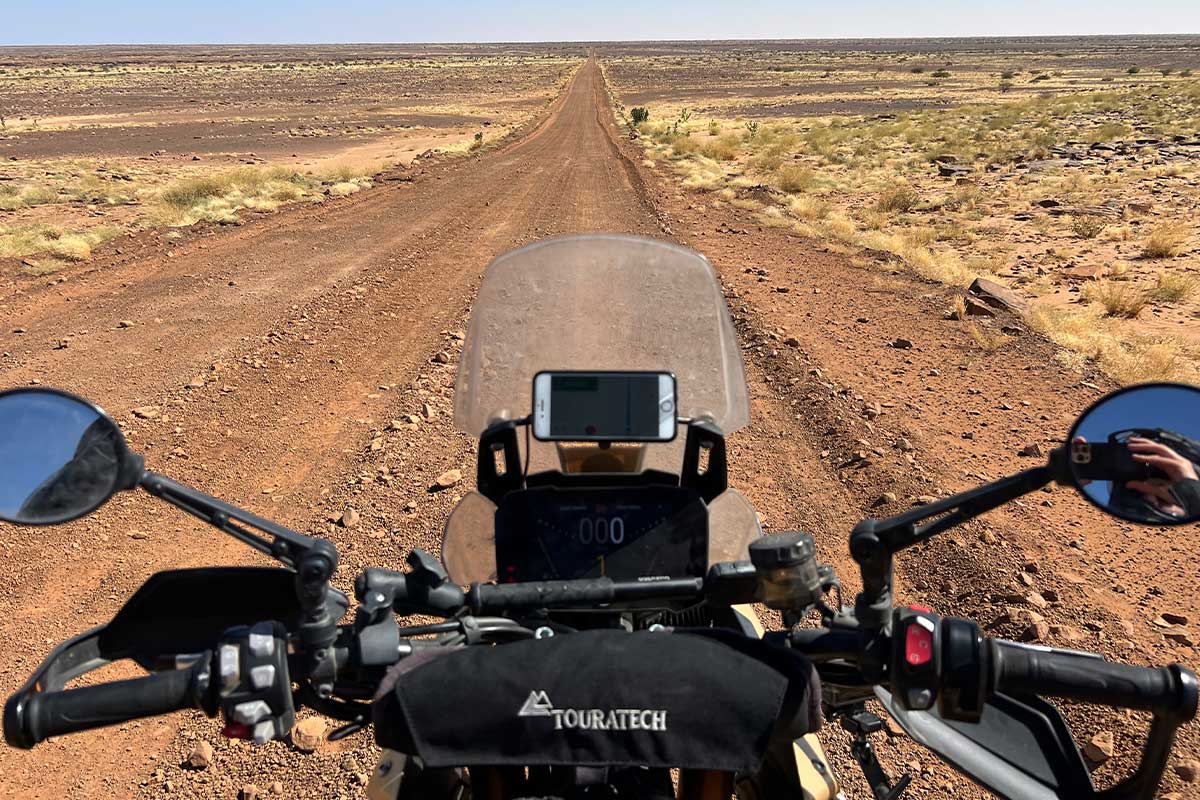
According to Thomas Ritt, an experienced Africa traveller in the service of the tour operator Edelweiss Bike Travel, one way to get through the bureaucratic jungle of border formalities relatively quickly is to hire a "border helper". Of course, there is a "stinkiness" to it, but it often speeds up the process immensely. "You won't get a receipt for this service," Thomas knows.
Thomas also recommends an undogmatic approach to smaller fines. "If you get a ticket from the police, it's best to ask for an 'instant fine'. This doesn't necessarily save money, but time, because the procedure at the police station can be quite lengthy. Many 'helpful' police officers are happy to offer this alternative on their own initiative...", Africa expert says.
Health precautions
Health precautions should not be neglected when travelling to Africa by motorbike. Even if only Covid and yellow fever vaccinations are obligatory in many countries, more extensive prophylaxis is recommended. General information can be obtained from your family doctor, but the doctors at the tropical institutes are much more knowledgeable. In addition to the two vaccinations mentioned above, prophylaxis against meningitis, hepatitis A, typhoid and rabies is advisable for trips to West Africa. However, even vaccination does not provide one hundred percent protection against these diseases. "Fiona came down with typhoid fever within four months of her vaccination," Sandra recalls.
The risk of malaria infection is also high. Drug prophylaxis is available against this tropical disease, but it can have significant side effects.
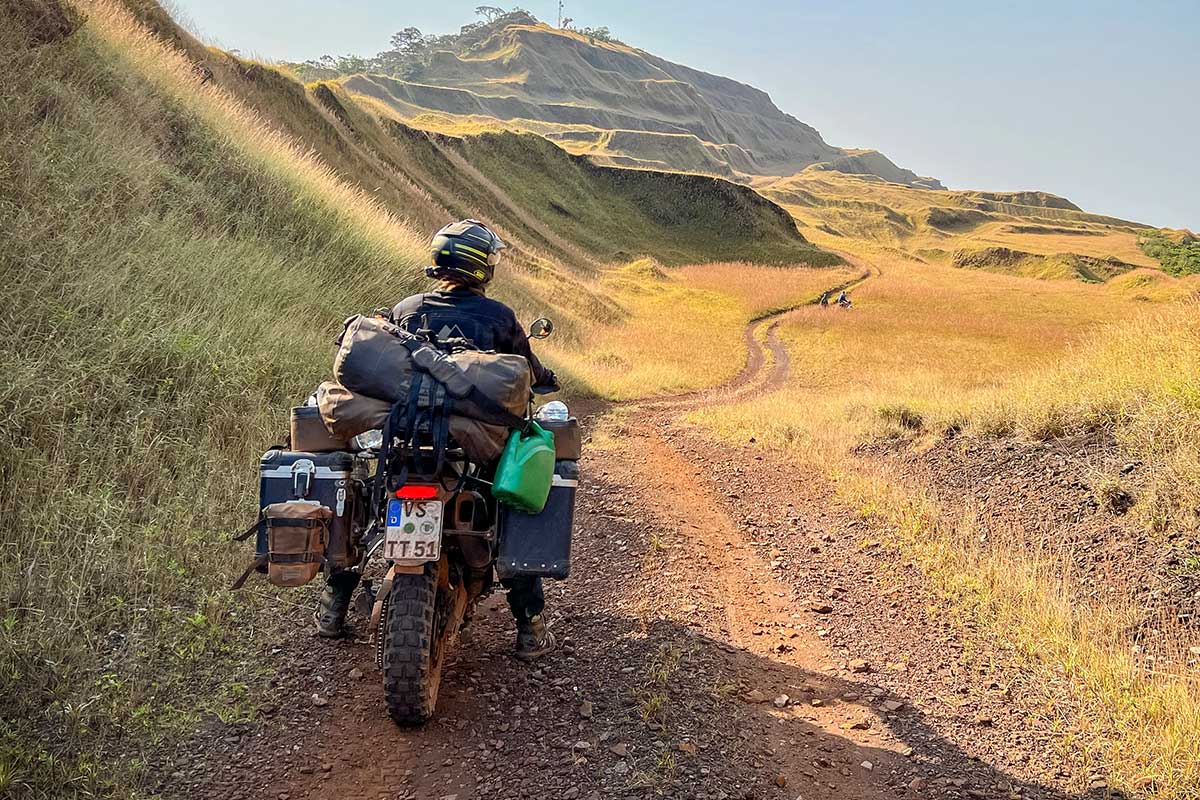
The Wide South
Once the Sahara and tropical Africa have been crossed, the savannahs, semi-deserts and deserts of the south await the motorbike traveller. The security situation in most countries of southern Africa is much better than in many states further north, which are plagued by Islamist activities. Lonely routes through breathtaking landscapes have always captivated adventure riders.
But loneliness can also have its pitfalls. Help is often hard to come by, so if you have a puncture here, you should be able to help yourself. "The most common problems are punctures," Ralf Moeglich, owner of the tour operator Gravel Travel, knows from decades of experience in Namibia and South Africa. "As a motorbike traveller, you definitely need to be prepared for a flat tyre and should also have practised changing or repairing tyres at home." Furthermore, Ralf recommends carrying a satellite phone or at least a navigation device with inReach function, such as the Garmin Montana 700i, for emergencies. The inReach technology allows messages and emergency calls to be sent via satellite even in areas without mobile phone reception.
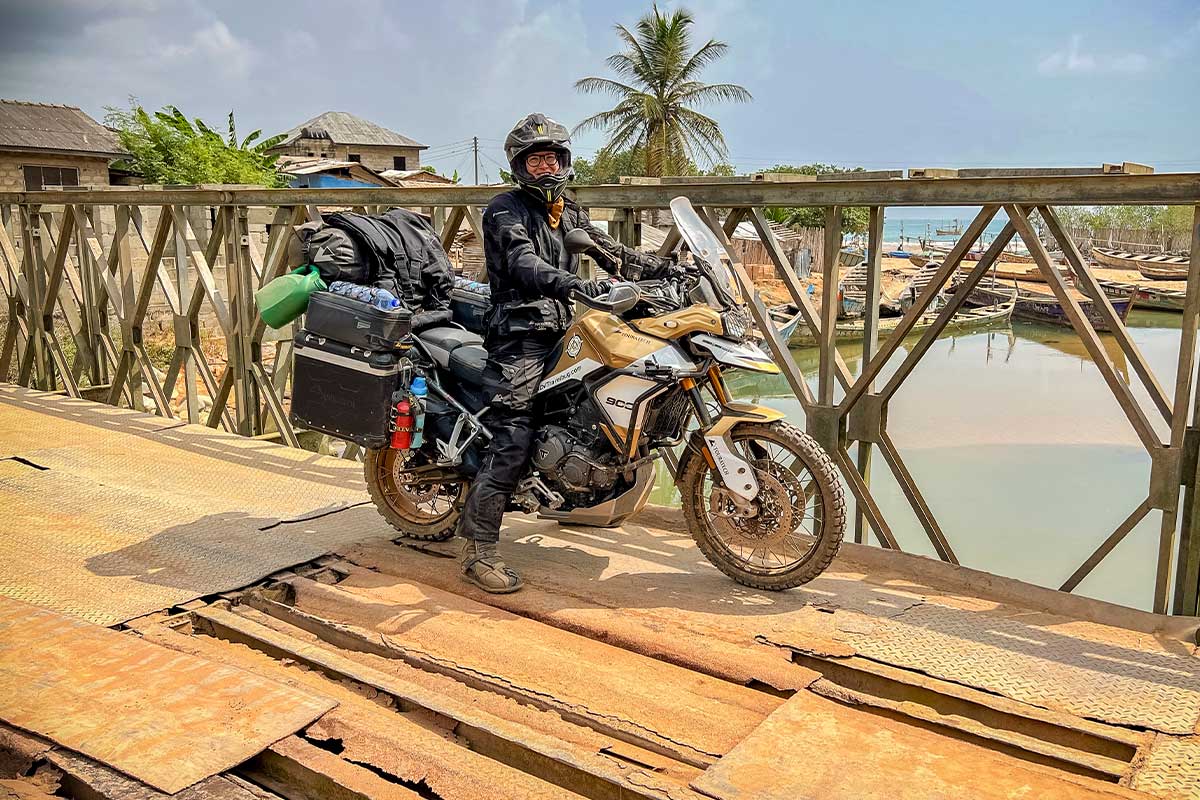
Wildlife
Encounters with the Big Five, but also with smaller wild animals, are certainly among the most impressive experiences in sub-Saharan Africa. Even outside the national parks, it can happen that you encounter imposing four-legged creatures on your motorbike. Thomas Ritt can reassure newcomers to Africa, however: "Most animals flee immediately at the sight and sound of the unknown object". However, caution is advised with some species, Thomas knows: "Elephants do not flee, they can even become aggressive quickly. Distance can save lives here! You should never get between an elephant and its herd or a waterhole. Even more dangerous than elephants are water buffaloes and hippos, which motorcyclists will encounter even less frequently.
Motorcyclists should avoid travelling after dark at all costs. Animals, dark-skinned and dark-clad people, unlit vehicles, potholes and bumpy bumps all pose a high risk of accidents. Near the equator, it also gets dark very quickly.
Even if the long-haul travel community has lost sight of Africa somewhat in recent years in favour of supposedly "easier" destinations, it is worth taking the effort to plan and organise. The scenic beauty, the warmth of the people and the driving challenge are worth all the effort. And with good preparation, the risks are also calculable.
Our experts
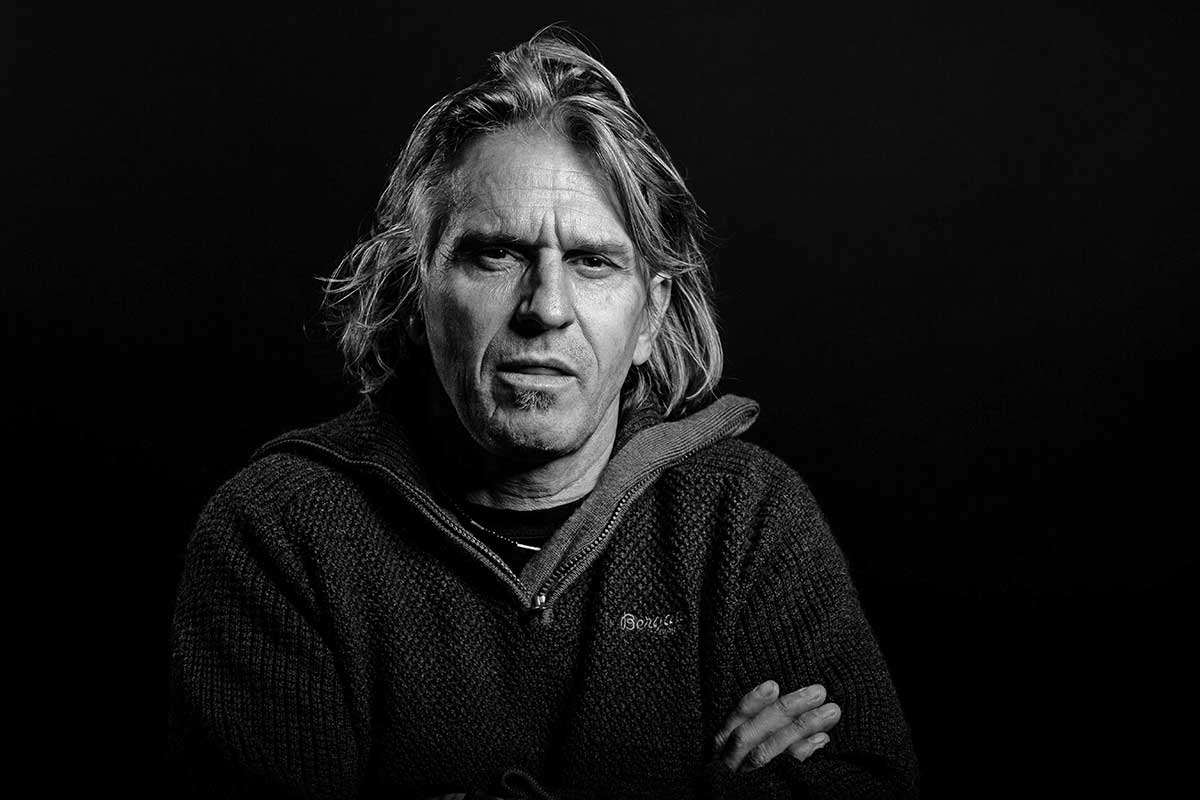
Joe Küster is the founder of the tour operator Overcross. Joe knows all the tricks to master the sometimes bizarre situations in Africa.
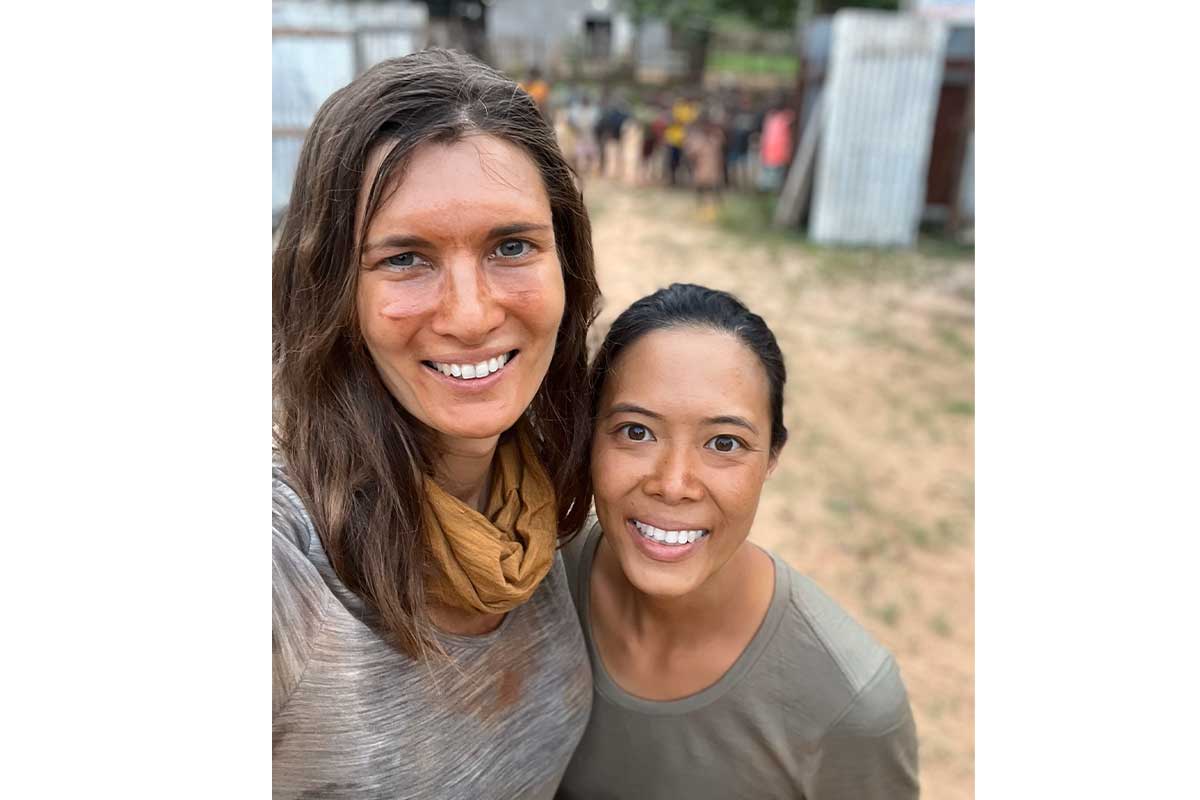
Sandra and Fiona travel the world as ADV Travel Bug and prefer to get off the beaten track.
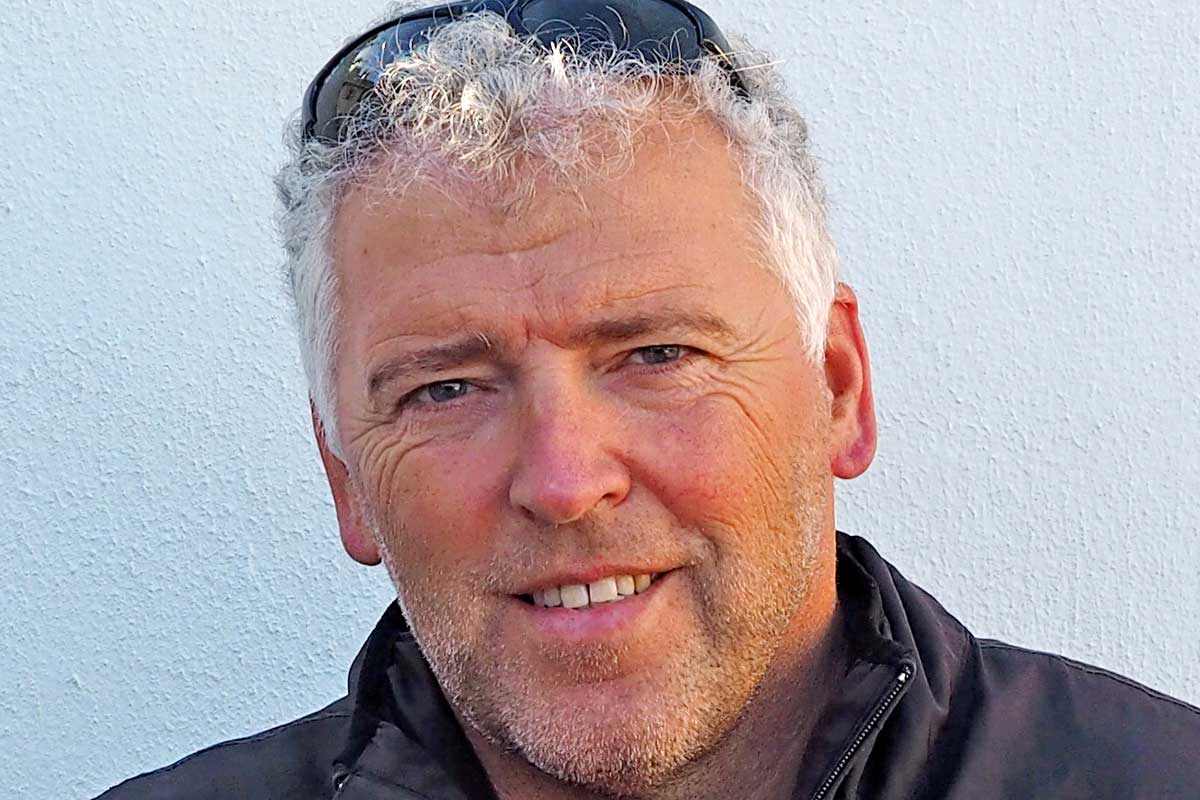
Ralf Möglich offers motorbike tours in southern Africa with his company Gravel Travel. He lives in Namibia for many months every year.
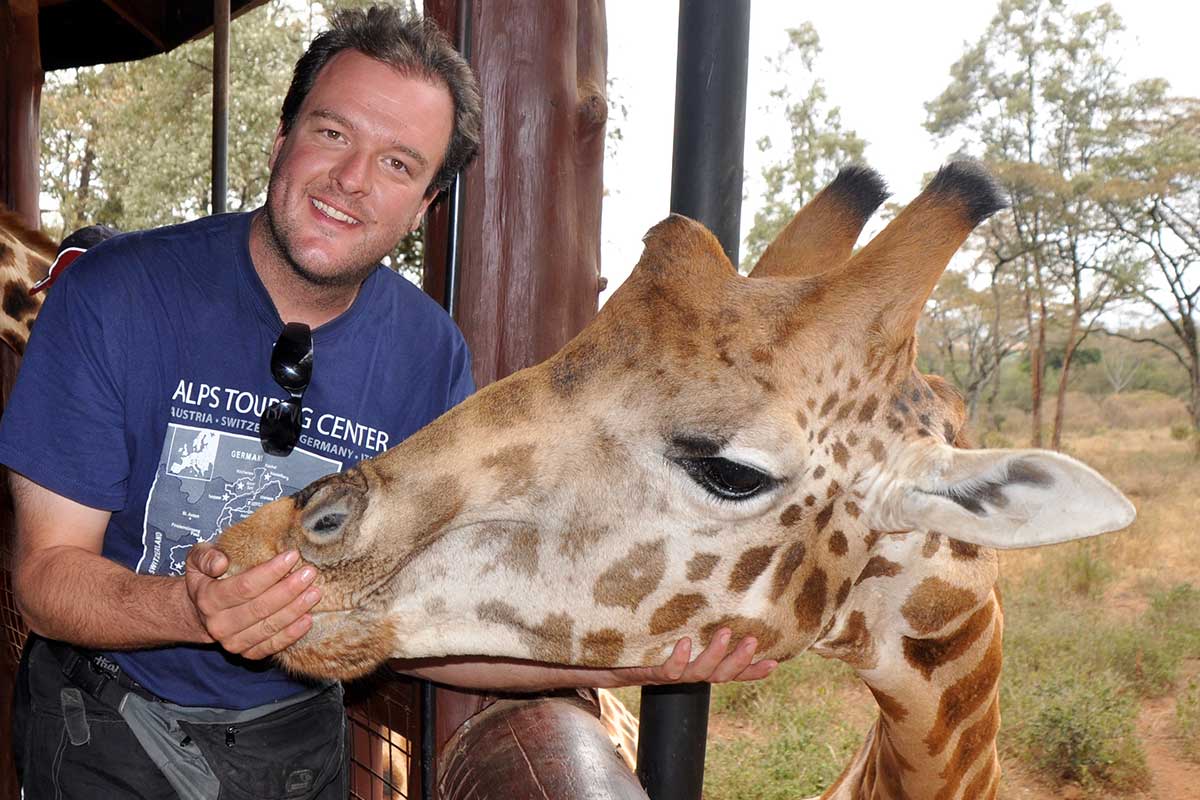
Thomas Ritt is Tour Programme Supervisor and Tour Guide Trainer at Edelweiss Bike Travel. He has a preference for the south of Africa.
Expert Advice: Joe Küster
The border Egypt-Sudan
Officially, the border crossing between Egypt and Sudan is closed. Nevertheless, individual tourists come through again and again. However, patience is required. It is important to apply for a regular visa for Sudan and NOT a transit visa. The latter is only valid for three days. In addition, a travel permit is required for Sudan (100 euros). "For the exit from Egypt via Wadi Halfa, you should definitely allow three days. Be sure to check your carnet to make sure that all data (vehicle, engine number, etc.) are one hundred percent correct. Even a small mistake in the numbers can get you into big trouble. And it's also not a bad idea to plan for a chunk of bribe money...", advises Joe Küster. "The entry into Sudan will then be unproblematic - as long as you have a correct visa. Be sure to stay informed via the relevant channels."
Update 3.5.2023: For the current situation, see "Travel warnings" later in the text.
Expert advice: Sandra + Fiona
»Passports, please!«
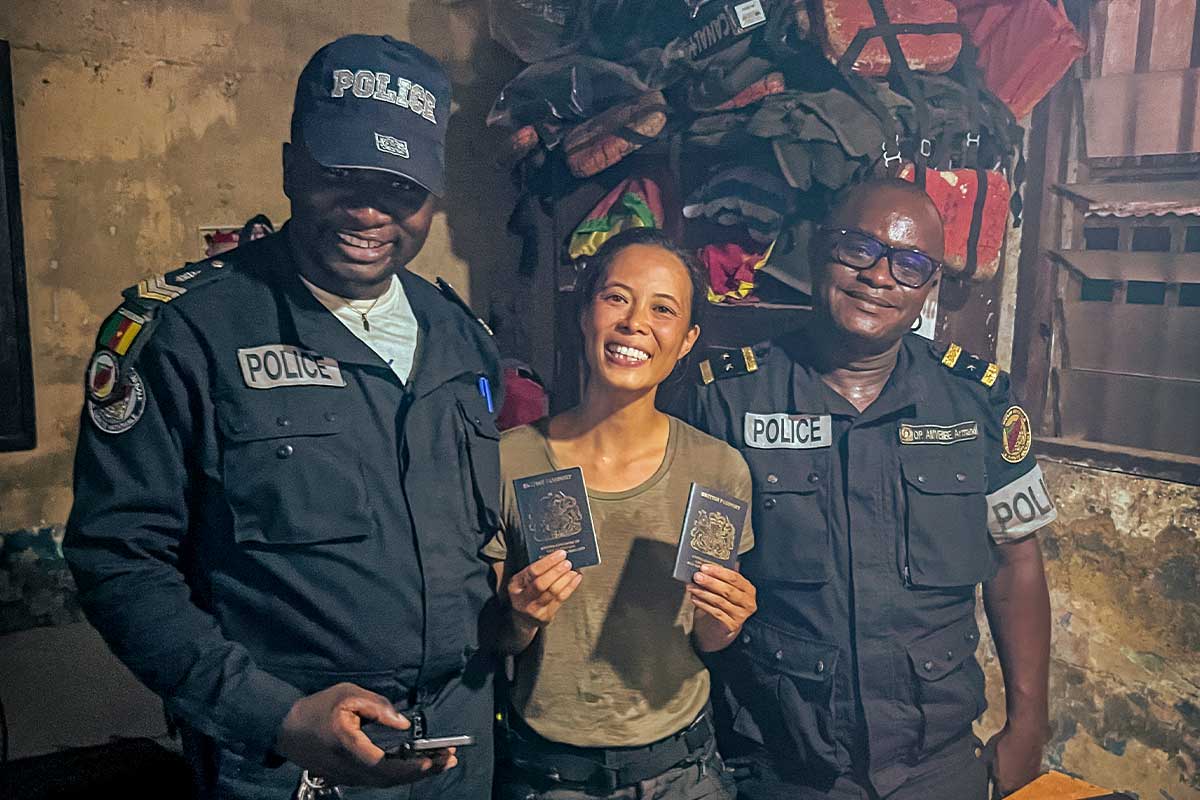
"If possible, you should apply for a new passport before crossing Africa, otherwise you will run out of free pages long before Cape Town. It is even worth paying for extra pages if this option is available. You can apply for a new passport at the German embassies in Africa, but the waiting time is often over three weeks.
A Carnet de Passage speeds up border crossings considerably, makes them possible in the first place for some countries. A friend of mine had to pay several hundred dollars in import duty in Ghana for a tracking device on her motorbike because she did not have a carnet. The Carnet de Passages is issued by the ADAC, for example, against a deposit.
Sometimes the land borders are closed and you need a special document called 'laissez passer' to get through. We needed this document in the Ivory Coast, for example - a country where the security situation is also precarious," Sandra and Fiona report.
Malaria
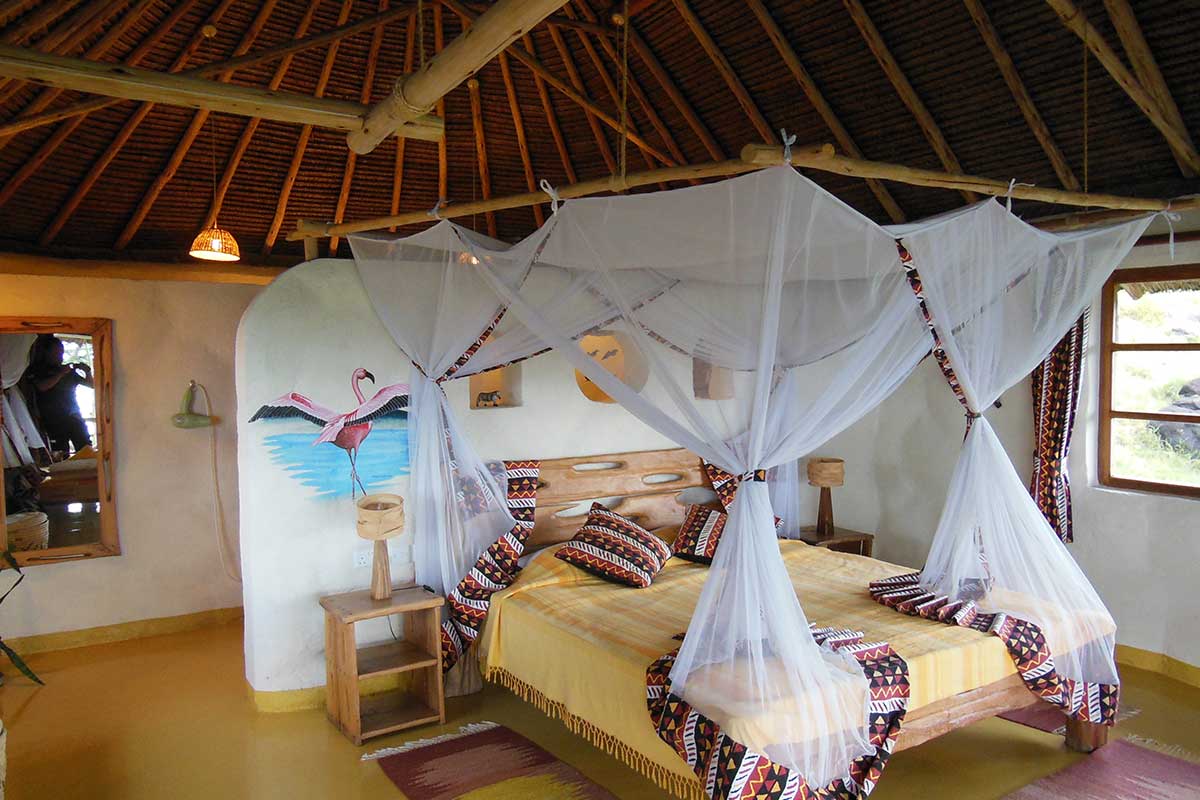
Malaria, transmitted by the bite of the mosquito Anopheles, is a dangerous disease. But if you see a doctor quickly after the first symptoms appear, you are usually treated intravenously and feel better within a few days. In most cases, you are then discharged from hospital and have to rest and take medication for another three to five days. Bad cases of malaria often occur when symptoms are ignored and treatment is delayed too long. "Whether or not to take preventive medication is a very personal decision that you should discuss with a tropical medicine doctor. In any case, it is very important that you protect yourself against insect bites with long-sleeved clothing, suitable repellents and mosquito nets," Sandra recommends.
Expert advice: Ralf Möglich
Security via satellite
While in many regions of Africa the mobile phone network is excellently developed due to the lack of a landline, in other parts of the country one is on the move for days without a network. In an emergency, it can take a long time before help is alerted. Satellite telephones, which communicate directly via the artificial satellites of the earth, provide a remedy. But devices and tariffs are expensive. The inReach technology offers a cheaper alternative. The system also uses the Iridium satellites, which, according to the company, offer worldwide coverage. With inReach, text messages can be sent and received, and emergency calls can be made to the International Emergency Response Coordination Centre, the round-the-clock global rescue centre. Live tracking of your own travel route is also possible. The inReach technology is integrated in numerous Garmin navigation devices. There are several subscription models for the service with monthly or annual terms.
Expert advice: Thomas Ritt
Food on the road
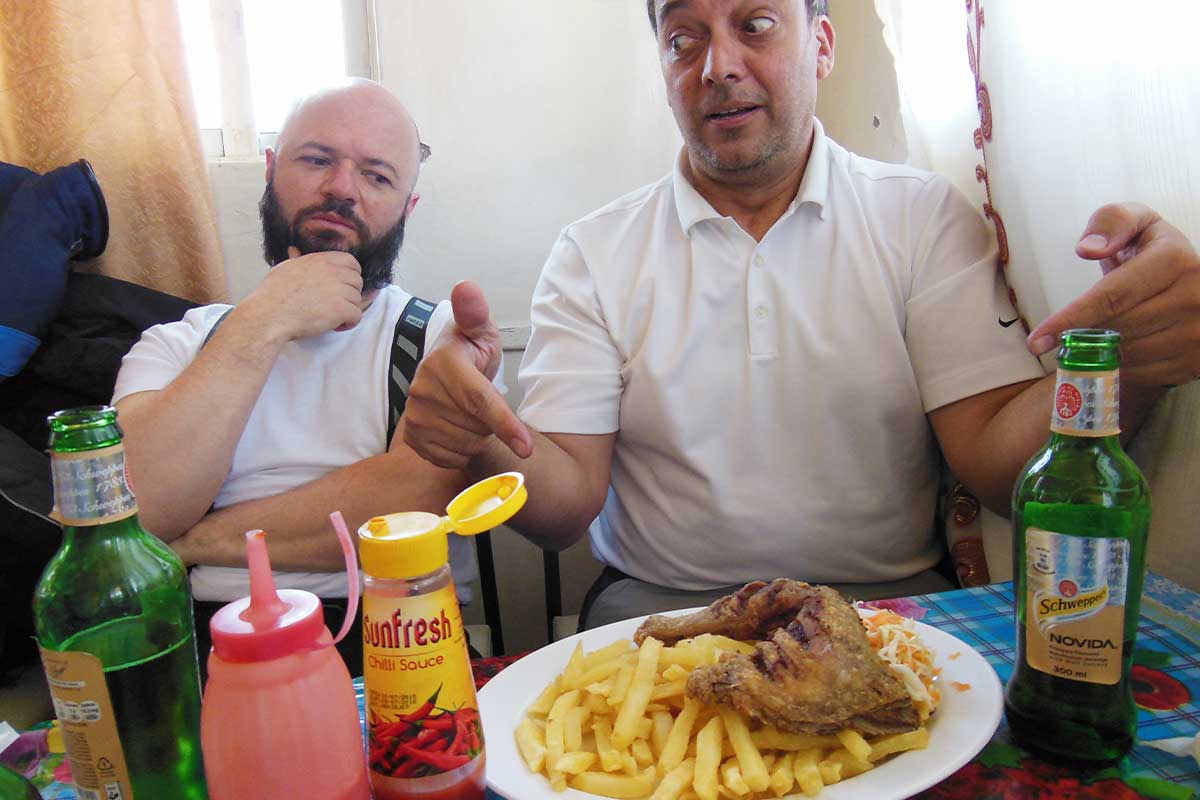
When it comes to food, it's best to be adventurous! "I have rarely tasted such good chicken and fish as in Africa. And that too in rather shabby-looking places. Tap water and salad, on the other hand, are taboo. Tip for friends of soft drinks: Stoney Tangawizi, with its slightly spicy note, tastes good with any dish," Thomas recommends.
National parks
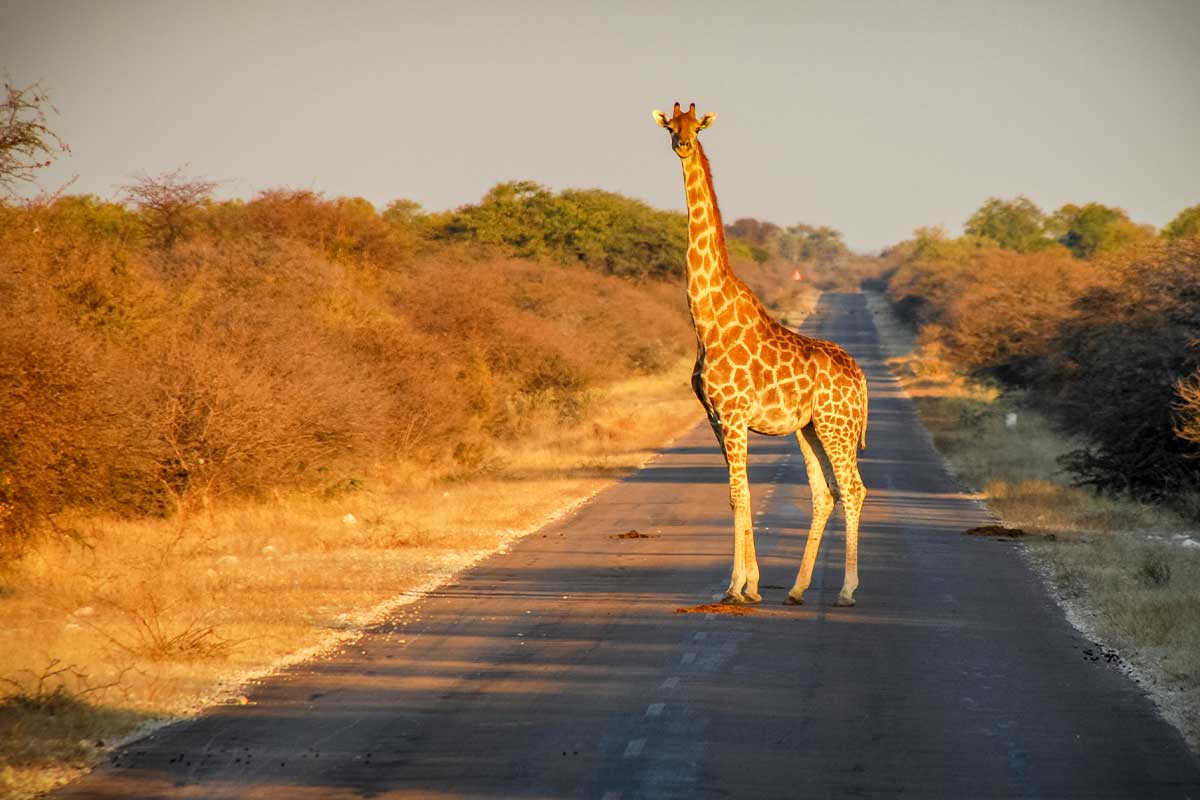
Entrance fees for East African national parks cost quite a lot, which you have to pay with a safari card. Since you are not allowed to go into the park on a motorbike anyway, it is best to hire a jeep with a driver. This is also expensive, but worth it, because without a knowledgeable driver you will hardly find any interesting animals in the parks, and then you don't have to get the card yourself. If you can't spread the costs over many shoulders, you might find a ride with another group. Tip: Hell's Gate National Park in Kenya is not accessible by motorbike, but by bicycle! Motorbikes can be parked at the park entrance. The fee must be negotiated individually, but there is no guarantee.
Travel warnings Afrika
Travel warnings are issued when it must be assumed that there is a concrete danger for life and limb of every traveller. In some cases, warnings are only issued for certain regions of a country (Partial travel warning).
Quote web page German Foreign Office, retrieved March 2023.
Update 3.5.2023
Shortly before the editorial deadline, the political situation in Sudan escalated. Due to a civil war-like situation, entry is not possible and absolutely not advisable until further notice. This makes the described eastern route obsolete.
Current information under












